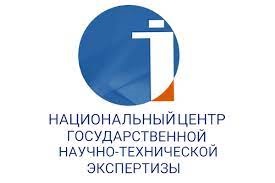LINGUOCULTURAL AND ETHNOLINGUISTIC ASPECT OF ADJECTIVES DENOTING HUMAN CHARACTER TRAITS
https://doi.org/10.55491/2411-6076-2024-4-51-61
Abstract
In general, the psycho-cultural features of a personality, expressing the principles of its existence (clothing, behaviour, culture of speech and other values), reflect the essence of a nation. In particular, the norms of behaviour, considered today as an object of study of psychological science, are also considered a special category from the point of view of linguocultural and ethno-cultural aspects. After all, from the communicative, pragmatic, discursive side, human behaviour reflects the culture not only of different social groups and organisations, but also of one nation or country. Therefore, the study of the concept of behaviour as an ethnolinguistic, linguocultural phenomenon is of great scientific importance. Accordingly, the article considers the ethnocultural sphere of ethnolinguistic adjectives and stable expressions characterising human behaviour. The lexical-semantic groups of adjectives expressing behavioural peculiarities are singled out, the common features of the mentioned lexical units for several cultures are differentiated. The synonymic-antonymic series of adjectives expressing human behaviour with positive and negative semantics was compared with other languages belonging to the Altaic language group and attention was paid to their etymology. The authors, relying on the works of Russian and foreign linguistic scientists, dwelled in detail on the ethnolinguistic meaning of those word units that are not often used in the modern linguistic fund. And also the analysis of the basics of linguoculturology, slangs and invective expressions characterising some negative features of human behaviour was carried out, comparing them with metaphorical comparisons in the Kazakh, Russian, Altai languages. Ethnolinguistics and ethnoculturology view adjectives as a multifaceted phenomenon reflecting the worldview and cultural values of a people. This study integrates these two disciplines to comprehensively analyze the linguistic and cultural heritage of the Kazakh people.
About the Authors
I. BaissydykKazakhstan
Indira Baissydy, Corresponding author, Doctor of Philosophy (PhD)
Almaty
N. Rsaliyeva
Kazakhstan
Nursaule Rsaliyeva, Candidate of Philological Sciences
Almaty
B. Halym
Kazakhstan
Bota Halym, Doctoral student
Almaty
A. Korbozova
Kazakhstan
Assem Korbozovа, Master student
Almaty
References
1. Aronov, G.K. (1992) Jetnolingvisticheskaja priroda narodnyh kosmonimov v kazahskom jazyke: аvtoreferat kandidatskoj dissertacij filologicheskih nauk. Almaty. [Aronov, G.K. (1992) Ethnolinguistic nature of folk cosmonyms in the Kazakh language: Abstract of the PhD. dissertation of philological sciences. Almaty.] (in Russian)
2. Bolat, P. (2013) Jetnolingvistikanyng qajnar kozderi. Abaj atyndagy KazUPU Habarshysy. Filologija serijasy, №1(43). Almaty, B. 35-38. [Bolat, P. (2013) Sources of ethnolinguistics. Bulletin of KazNPU named after Abai. Philology series, No.1(43), P. 35-38.] (in Kazakh)
3. Dobrinina, A.A. (2006) Prilagatel'nye sovremennogo Altajskogo jazyka, oboznachajushhcie cherty haraktera cheloveka: dissertacija na soiskanie uchenoj stepeni kandidata filologicheskih nauk. Nobosibirsk, 130 s. [Dobrinina, A.A. (2006) Adjectives of the modern Altai language denoting human character traits: Dissertation for the degree of candidate of philological sciences. Novosibirsk, 130 p.] (in Russian)
4. Eskazinova, Zh.A., Ajazbaeva, S.S. (2008) Adam mіnez-qulqyna bajlanysty leksikalyq toptarga jetnolingvistikalyq sipattama beru. KazUU Habarshysy. Filologija serijasy. №3. Almaty, B. 162-164. [Yeskazinova, Zh.A., Ayazbayeva, S.S. (2008) Ethnolinguistic description of lexical groups related to human behavior. Bulletin of KazNU. Philology series. No.3. Almaty, P. 162-164.] (in Kazakh)
5. Maslova, V.A. (1988) Jeksperimental'noe izuchenie nacional'no-kul'turnoj specifiki vneshnih i vnutrennih kachestv cheloveka (na materiale kirgizskogo jazyka). Jetnopsiholingvistika. Moskva, 192 s. [Maslova, V.A. (1988) Experimental study of the national and cultural specifics of the external and internal qualities of a person (based on the material of the Kyrgyz language). Ethnopsycholinguistics. Moscow, 192 p.] (in Russian)
6. Musaly, L. (2017) Soz talgaudyng sharttary. «Ana tili» gazeti. 18.05.2017. [Musaly, L. (2017) Word selection condition. «Ana tili» newspaper. 18.05.2017.] (in Kazakh)
7. Nurmagambetov, A. (1994) Bes zhuz bes soz. Almaty: Rauan, 306 b. [Nurmagambetov, A. (1994) Five hundred and five words. Almaty: Rauan, 306 p.] (in Kazakh)
8. Qaidar, A. (2009) Qazaqtar ana tili aleminde: jetnolingvistikalyq sozdik. 1 tom. Adam. Almaty, 784 b. [Kaidar, A. (2009) Kazakhs in the world of language: ethnolinguistic dictionary. 1 vol. Adam. Almaty, 784 p.] (in Kazakh)
9. Qaliev, B. (2014) Qazaq tilining tusindirme sozdigi. Almaty, Memlekettіk tіldі damytu instituty, 728 b. [Kaliyev, B. (2014) Kazakh explanatory dictionary. Almaty: State Language Development Institute, 728 p.] (in Kazakh)
10. Rsaliyeva, N.M. (2023) When Speech is Tainted by Foreign Words. «Ana tili» newspaper, 28.09.2023. (in Kazakh)
11. Sevortjan, Je.V. (1974) Jetimologicheskij slovar' tjurkskih jazykov. Obshhetjurkskie i mezhtjurkskie leksicheskie osnovy na bukvy “K” i “Қ”. Мoskva: Nauka, 768 s. [Sevortjan, Je.V. (1974) Etymological dictionary of the Turkic languages. Common Turkic and inter-Turkic lexical bases on the letters “K” and “K”. Moscow: Nauka, 768 p.] (in Russian)
12. Tanabaeva, A.M., Orazgalieva, F.Sh. (2001) Leksika i frazeologija kak istochnik jetnokul'turnoj informacii. Karaganda. [Tanabayeva, A.M., Orazgaliyeva, F.Sh. (2001) Vocabulary and phraseology as a source of ethnocultural information. Karaganda.] (in Russian)
13. Tolstoj, N.I. (1983) O predmete jetnolingvistiki i ejo roli v izuchenii jazyka i jetnosa. Areal'nye issledovanija v jazykoznanii i jetnografii. Jazyk i jetnos. Leningrad: Nauka, 250 s. [Tolstoi, N.I. (1983) About the subject of ethnolinguistics its role in the study of language and ethnos. Areal studies of linguistics and ethnography. Language and ethnicity. Leningrad: Nauka, 250 p.] (in Russian)
14. Zavorotishheva, N.S. (2008) Invektivnye oboznachenija otricatel'nyh chert haraktera i asocial'nyh modelej povedenija v ispanskom i amerikanskom lingvokul'turnom soobshhestve. Vestnik RUDN, Serija Lingvistika, №3. S. 69-74. [Zavorotishcheva, N.S. (2008) Invective designations of negative character traits and asocial patterns of behavior in the Spanish and American linguocultural communities. Bulletin of RUDN University, Linguistics series, No.3. P. 69-74.] (in Russian)
Review
For citations:
Baissydyk I., Rsaliyeva N., Halym B., Korbozova A. LINGUOCULTURAL AND ETHNOLINGUISTIC ASPECT OF ADJECTIVES DENOTING HUMAN CHARACTER TRAITS. Tiltanym. 2024;96(4):51-61. (In Kazakh) https://doi.org/10.55491/2411-6076-2024-4-51-61
JATS XML

















